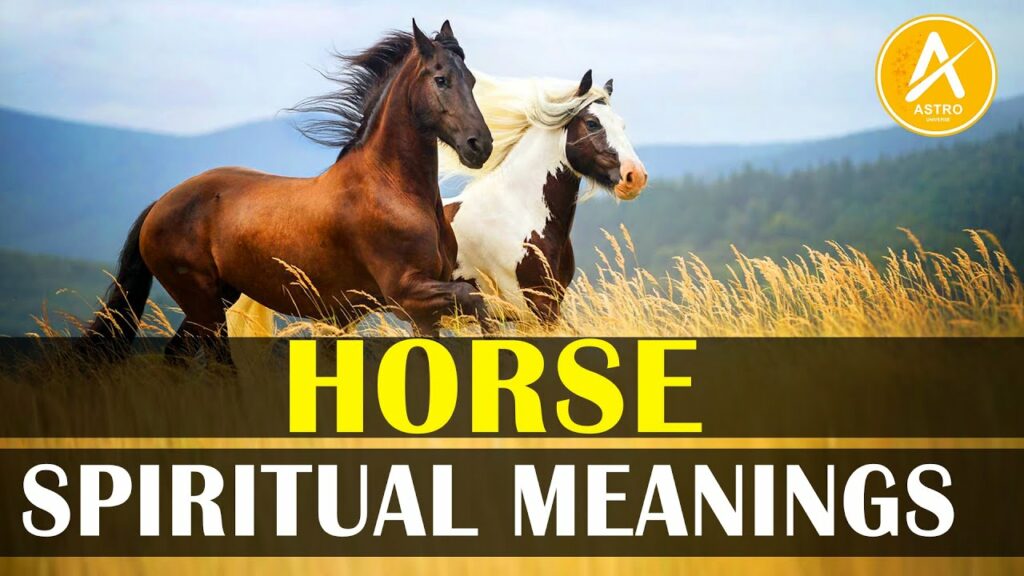The horse has galloped through human history not just as a beast of burden or an instrument of war, but as a profound symbol. Across cultures and throughout time, this magnificent animal has embodied concepts of freedom, strength, and so much more, becoming an enduring part of our art, mythology, and collective consciousness.
Symbols of Freedom
The image of a wild horse, galloping across an open plain with its mane and tail streaming in the wind, is the very picture of unbridled freedom. This symbolism is deeply ingrained in human culture, representing:
- The Untamed Spirit: Horses, especially in their wild state, represent an inner yearning for liberation and authenticity. They encourage us to break free from self-imposed or societal constraints and to pursue our own path with passion.
- Adventure and Exploration: A horse’s ability to cover vast distances symbolizes the human drive for adventure and new horizons. It reminds us that our personal journeys—whether physical, emotional, or spiritual—are just as important as external travel.
- Mobility and Progress: Historically, horses revolutionized travel and trade. They allowed people to move faster and farther than ever before, making them a potent symbol of forward movement, progress, and reaching one’s destination.
Symbols of Strength
Beyond freedom, the horse is a powerful emblem of physical and spiritual strength.
- Physical Power and Endurance: Horses are known for their incredible stamina and strength, capable of performing heavy farm work, running long distances, and carrying warriors into battle. This physical prowess has made them a symbol of resilience, reminding us to persevere through challenges and maintain our strength over the long haul.
- Military Might and Authority: From ancient chariots to medieval cavalry, the horse has been a central figure in warfare. This role cemented its status as a symbol of military strength, power, and the ability to conquer. Equestrian portraits, with rulers mounted on magnificent steeds, served as a visual metaphor for their control and leadership.
- Inner Strength and Resilience: The horse’s strength is not just physical. It also represents the inner fortitude needed to navigate life’s trials and the will to endure, adapt, and overcome obstacles.
Horses in Mythology and Culture
The symbolic power of the horse is woven into the myths and traditions of countless civilizations.
- Greek and Roman Mythology: The Greeks believed the god Poseidon created the horse, and they are featured in countless myths. Pegasus, the winged horse, is a famous symbol of poetic inspiration and the ability to rise above one’s earthly origins. The Trojan Horse, while not a real animal, is a legendary symbol of cunning and guile in warfare.
- Norse Mythology: The most famous horse in Norse mythology is Sleipnir, Odin’s eight-legged steed, who can travel between the nine worlds. He is a symbol of great speed, strength, and a divine connection.
- Celtic Mythology: In Celtic folklore, horses were often associated with goddesses and were seen as symbols of fertility, abundance, and the spiritual world. The goddess Epona was a divine mare who offered nurturing and prosperity.
- Native American Culture: For many Native American tribes, the introduction of the horse by the Spanish transformed their way of life. They became essential for hunting and travel, and were deeply respected as spiritual companions and symbols of wealth, status, and healing. The Lakota called horses “Sun’ka Wakan,” or “Holy Dog,” a testament to their sacred status.
- Chinese Zodiac: In the Chinese zodiac, the horse is a sign that represents practicality, endurance, devotion, and stability. It is also believed to be an eliminator of evil and immorality.
The horse, with its grace, power, and untamed spirit, continues to captivate our imagination and serve as a powerful reminder of the freedom and strength we can find within ourselves.
